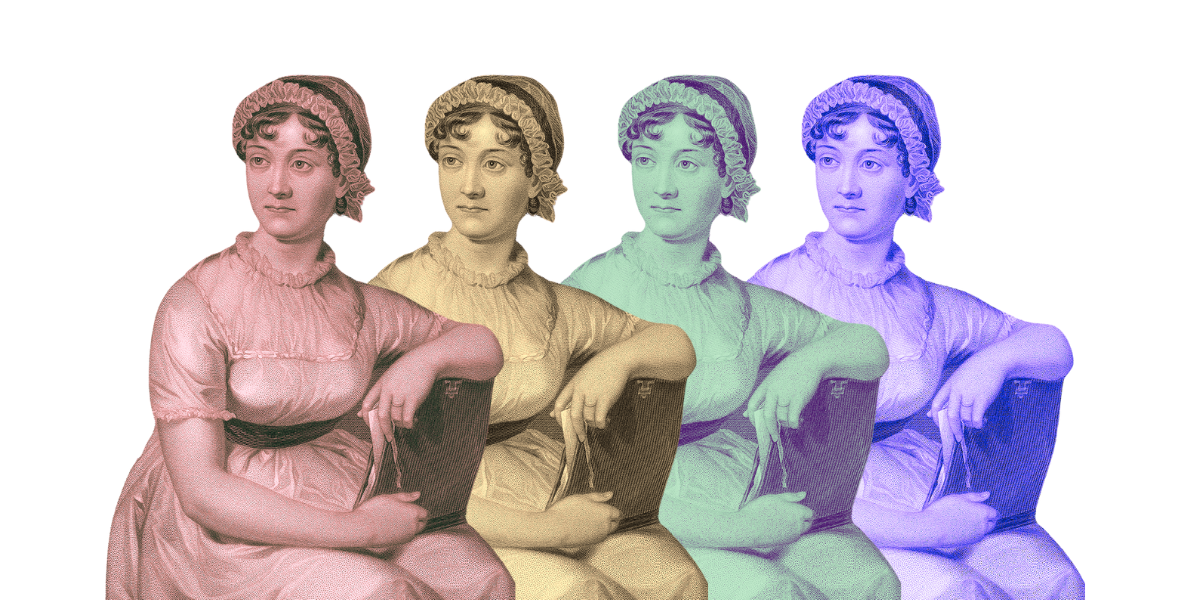If you've ever talked to me for longer than 5 minutes, you've probably heard me say my absolute favorite lesson from my English degree: "Language is fluid."
What exactly does that mean? It means that all of language is made up. It changes constantly based on common usage, popular communication methods, and the world at large.

Yes, your third-grade English teacher lied to you. We all learn a ton of grammar rules that are outdated, mere rumors, or just plain wrong.
English — and all active languages — are constantly evolving, reflecting the ever-changing world around us.
The Fluidity of Language
What’s considered correct grammar today might be outdated or rejected completely tomorrow, and grammar rules shift to accommodate how we communicate.
These changes are influenced by everything from technology (think of texting-speak lol) to globalization (we often "borrow" words from other languages). Social media, for example, has accelerated linguistic change, with abbreviations, emojis, and informal tone becoming widely accepted in both casual and professional settings. Heck, words are added to the dictionary all the time!
Grammar, too, isn’t a rigid set of rules, but a flexible framework that adapts to how people actually speak and write. What was once deemed "incorrect" can become standard over time, as usage patterns become more widespread.
This fluidity makes language both fascinating and challenging, as it reflects not only how we express ourselves but also how we shape and are shaped by the world around us. It also means grammar enthusiasts have to keep up with the times, or risk being wrong.
English Grammar Rules You're Getting Wrong
Here are a few of my favorite English-language grammar "rules" ... that are actually wrong.
1. Ending a Sentence with a Preposition
If you, like me, have ever been corrected by an English teacher when you ended a sentence with a preposition, you probably wasted a good deal of time trying to rewrite the sentence and ended up with something convoluted:
In which case you might be annoyed to learn that you absolutely can end a sentence with a preposition in the English language.
In fact, this is actually a rule from Latin that 17th-century grammarians arbitrarily applied to English for reasons lost to history. They started writing about it, and people believed them.
Seriously.
Learn more about it in this article from Merriam-Webster, one of the most influential and best-known English dictionaries.
2. "My Brother & I"
"The same fourth-grade teacher taught my brother and me."
"You mean 'my brother and I.'"
No, I don't. (This is an actual conversation I had recently.)
This over-correction is so common, you'll even see it in published works quite frequently. Why? It's pretty simple:
At some point as a kid, you probably started a sentence with "My mom and me ..." And were promptly corrected: "Actually, it's 'My mom and I...'"
We all had an experience like this early on and duly applied it everywhere:
But that's applying the rule wrong. To get technical about it, I is subjective — it's used as the subject of a sentence, while me is objective — used as an object.
This is a fun one to learn just for the satisfaction of correcting someone who tries to incorrectly correct you.
3. Singular "They"
Think twice before you try to argue against this one. It's pretty straightforward.
While using "they" in a nonbinary sense may be relatively modern, the use of the word in the third-person singular is not only not wrong, it's decidedly not new.
In fact, the Oxford English Dictionary has traced the use of the singular they all the way back to 1375, in a romance called William and the Werewolf.
You know what else used to be a plural pronoun that became singular? You. Yes, you.
TLDR: Werewolves and the singular "they" — neither are new to English literature. So leave users of they alone unless you're going around still using thou.
4. A vs. An
This is one of my favorites because native English speakers usually do it correctly when speaking but don't even know they're doing it so they sometimes get it wrong when writing.
Most of us learned that the rule for whether to use "a" or "an" before a word is based on whether the word starts with a consonant or vowel.
I'm about to blow your mind: That's not the rule.
The actual rule for choosing "a" vs. "an" before a word is whether that word starts with a vowel or consonant sound.
After all, you would say "an umbrella" but also "a useless umbrella." Likewise, you'd talk about "a home" but spend "an hour" doing something.
Nifty, huh?





























